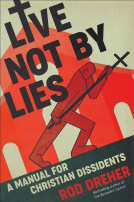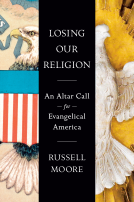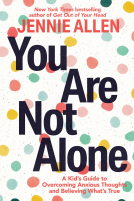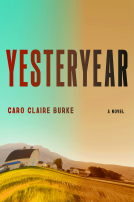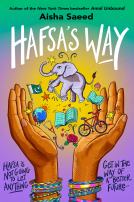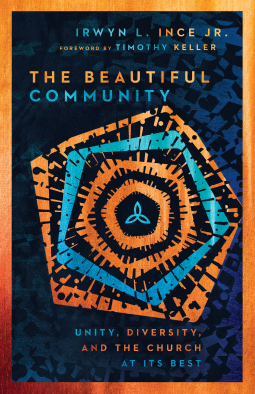
The Beautiful Community
Unity, Diversity, and the Church at Its Best
by Irwyn L. Ince
This title was previously available on NetGalley and is now archived.
Send NetGalley books directly to your Kindle or Kindle app
1
To read on a Kindle or Kindle app, please add kindle@netgalley.com as an approved email address to receive files in your Amazon account. Click here for step-by-step instructions.
2
Also find your Kindle email address within your Amazon account, and enter it here.
Pub Date Aug 04 2020 | Archive Date Sep 03 2020
InterVarsity Press | IVP
Talking about this book? Use #TheBeautifulCommunity #NetGalley. More hashtag tips!
Description
Outreach Resource of the Year
The Gospel Coalition Book Award
The church is at its best when it pursues the biblical value of unity in diversity.
Our world has been torn asunder by racial, ethnic, and ideological differences. It is seen in our politics, felt in our families, and ingrained in our theology. Sadly, the church has often reinforced these ethnic and racial divides. To cast off the ugliness of disunity and heal our fractured humanity, we must cultivate spiritual practices that help us pursue beautiful community.
In The Beautiful Community, pastor and theologian Irwyn Ince boldly unpacks the reasons for our divisions while gently guiding us toward our true hope for wholeness and reconciliation. God reveals himself to us in his trinitarian life as the perfection of beauty, and essential to this beauty is his work as Father, Son, and Holy Spirit. The gospel imperative to pursue the beautiful community—unity in diversity across lines of difference—is rooted in reflecting the beautiful community of our triune God. This book calls us into and provides tools for that pursuit.
Advance Praise
"Irwyn Ince is not merely a gifted thinker and writer on the subject of loving across the lines of difference. He is also, and has been for the duration of his life and ministry, a compelling practitioner of these important kingdom matters about which he writes. Irwyn is also my good friend. I have learned much from him and have been loved well by him. The same is true of the community that I serve, as we have drawn on Irwyn's wisdom in our own effort to honor the call of our Lord, who demolishes dividing walls and brings together Jew and Gentile—and every other race that is part of humanity—under Christ. If you are eager to move forward in the triune God's call to love and build community with those who are not like you, then this is the book for you."
-Scott Sauls, pastor of Christ Presbyterian Church in Nashville, author of Jesus Outside the Lines
"In John 17 Jesus prayed that the church would be one, just as he and the Father are one. The Beautiful Community is a clarion call to the church to image our triune God in both our unity and diversity—to see and cherish the beauty of a diverse and unified body of Christ. The church needs this book more than ever, and I'm thankful Irwyn Ince has written it."
-Christina Fox, writer, speaker, and author of Closer Than a Sister: How Union with Christ Helps Friendships to Flourish
"Irwyn Ince lays out a blueprint for the church in the twenty-first century. While we are individually made in the image of God, we are also corporately made in God's image as a body. At a time when we are as polarized and divided as ever, when culture is desperately trying to define our identity, there is no greater need than for God's church to model 'beautiful community' and true 'gracism.'"
-David A. Anderson, author of Gracism, founder and senior pastor of Bridgeway Community Church in Columbia, Maryland
"Dr. Ince provides all Christians in the American context, and the churches in which they serve, an accessible and clear biblical and theological vision to help them work toward the unification of all things and all people in Christ. The book is grounded in a succinct and accessible biblical, theological, and historical vision for the 'beautiful community' and written with the prose of a concerned pastor who longs to see the people of God reach their redemptive potential in matters related to ethnic unity and racial conciliation. Readers might not agree with everything Ince says in this book, but they will certainly be challenged to consider carefully the biblical and theological imperative of pursuing what he calls the 'beautiful community.'"
-Jarvis J. Williams, associate professor of New Testament interpretation at Southern Baptist Theological Seminary
"Irwyn Ince is a ministry-minded, biblically grounded Christian leader with equal passion for the unity and diversity of the body of Christ. In this historically informed, culturally relevant, and theologically astute book, Ince grounds his fresh vision for the beautiful people of God in the holy beauty of the triune God. I recommend this guide for anyone who is open to understanding the deeper reasons why racial reconciliation is essential to living out the gospel."
-Philip Ryken, president of Wheaton College
Available Editions
| EDITION | Other Format |
| ISBN | 9780830848317 |
| PRICE | $18.99 (USD) |
| PAGES | 176 |
Average rating from 11 members
Featured Reviews
 David S, Reviewer
David S, Reviewer
The book is about the beautiful community, the Church, and worshipping together in all our diversity. The author argues that God reveals himself in the trinity as perfect beauty and fellowship. As followers of Christianity it becomes incumbent upon us to form beautiful communities in our churches. I would add Dr. Martin Luther King Jr. called the church "The Beloved Community" and our beautiful communities will become beloved communities.
Ince notes we as the church are the prolepsis of the Kingdom of God here and now. He also reflects on the reality of a new heaven and new earth:
"Can you picture the nations coming to the feast with joy? Some approaching with moccasins on their feet, others dressed in Kente, or saris, or overalls, still others with turbans on their heads! And the one raising the glass for the toast is the bridegroom! He speaks and reminds us of how he told the disciples at the Last Supper that he would not drink again of the fruit of the vine until that day when he drank it new with them in his Father’s kingdom (Matthew 26: 29). That new day has fully arrived! And as he raises the glass he’s not looking up in the sky. Rather he’s looking everyone in the eye with a loving gaze that communicates, “I see you. I made you. I redeemed you. You’re welcomed at my table as queens and kings, a kingdom of priests.”"
Ince opens our eyes to the beautiful community, creating the desire to work toward such, yet understanding it will not be perfected until we are with Jesus in his Father's Kingdom. He also provides for us suggestions as to how we can create a path to the beautiful community.
I highly recommend reading and adding this book to your library. It was insightful and and a joy to read.
This book has been provided courtesy of InterVarsity Press and NetGalley without requiring a positive review. All opinions offered above are mine unless otherwise stated or implied.
 Paul M, Reviewer
Paul M, Reviewer
Pastor Irwyn Ince has broken ground in the Presbyterian Church in America, as the first African-American elected as moderator of the General Assembly. In a mostly white denomination, he's leading the charge for diversity, as he has done in the Grace DC Presbyterian churches where he has served as a pastor. In his book The Beautiful Community, he further casts the message: the body of Christ is a beautiful community that includes people of all races. He writes that "the ministry of reconciliation demonstrated in the local church by the gathering of people from diverse backgrounds, cultures, and ethnicities is the natural outworking of a rich covenantal theological commitment."
The covenantal relationship we share among ourselves, as reflected in our covenantal relationship with God, should also reflect the "beautiful community" shared among the three persons of the Trinity. "To refuse to pursue unity in diversity as a redeemed people is to fundamentally neglect what it means for us to be the image of God."
Of course, the point of writing this book is that the church does not reflect that unity in diversity. To be fair, I think we (meaning the contemporary American church) try harder than Ince gives us credit for. Ince's anecdotes aside, I think it would be rare for a person of any race to walk into any church in America and be excluded or shunned because of race. The larger question is the assimilation and blending of culture that should happen. We, as humans, hang on to our identities. "Our Blackness, our whiteness, our Asian-ness, our Latino-ness still tends to be at the center of our identity even after faith in Jesus Christ." And this is reflected in the styles of worship we enjoy. Ince points out that as welcoming as white Christians may be to other races in our churches, they still worship, teach, and fellowship like white people, expecting other races to assimilate to their ways (which are not biblical but cultural).
While this is true of white Christians, as the majority culture in America, I would argue that it's true of virtually any culture. My wife and I are white and one of our children is black. When he was getting old enough to be aware of the world around him, we moved to a new city and hoped to find a diverse church. What we found were culturally black churches, some with a few white people, and culturally white churches, some with a few minorities. We chose a mostly white church with a few black families and a couple of families who had also adopted black children.
Can worship ever be separated from culture? Likely not. Can we learn to worship together in beautiful communities? Absolutely. "He enables us to love, hear, seek, understand, and pursue one another in our diversity." This is a process of discipleship, and of giving up our preferences. I don't know how much The Beautiful Community moves us toward that goal, which will likely never be achieved short of heaven, but it's certainly food for thought and a challenge to consider how much of our worship, and even our theology, is tied to our cultural and racial preferences, not to our shared, biblical faith.
Thanks to NetGalley and the publisher for the complimentary electronic review copy!
Like many in recent months, I have intentionally sought out books by people of color to try and become better educated about their experiences. Understandably and rightfully so, much of this reading has included heavy content. While this book does not shy away from hard topics, it left me with a hope for the vision of the church as the Bible describes it: people from every tribe, tongue, and nation gathered at the marriage supper of the Lamb.
Ince Jr. begins the book by showing how a pursuit of diversity in the church is sustained by our trinitarian God who is Himself the picture of beautiful community. When the church pursues diversity with the goal of more accurately reflecting God rather than because it is the current hot topic, it will have far better and more authentic results.
From there, the book reads as a sort of "how to" manual for Christians who desire to see the church reflect God's heart for unity. He discusses tokenism, politics, majority and minority culture, and gratitude. I believe if we took to heart what the author talks about in this book, God would be glorified and the watching world would marvel at the power of the gospel to unite.
This book gave me a real look at the effort required to pursue unity with purity of heart, but it also left me hopeful. I learned a lot by reading it and would highly recommend it.
Irwin Ince's The Beautiful Community is a timely polemic to the Church on her lack of true ethnic and cultural diversity in the 21st century. Martin Luther King, Jr. famously said "it is appalling that the most segregated hour of Christian America is eleven o'clock on Sunday morning", and this indictment still rings true in 2020. Ince employs a thoroughly Biblically-informed approach to tackle the Christian vision of the Church as a diverse and beautiful community. By tracing themes of unity amidst diversity all throughout Scripture, Ince employs a strategy that cuts to the heart of readers who wish to align their ecclesiological vision with that of Yahweh. The regular pattern of anecdotal examples assists in driving home Ince's thesis of re-structuring local church communities to place minorities in leadership without tokenism, assimilation, or sacrifice of orthodoxy.
Where Ince's work could use improvement could be deeper and more frequent case studies. Additionally, hypothetical examples would serve to assist the reader in applying the book more readily.
Readers who liked this book also liked:
Harold Earls, IV; Rachel Earls
Biographies & Memoirs, Parenting, Families, Relationships
L.M Montgomery
Children's Fiction, Comics, Graphic Novels, Manga, Teens & YA

